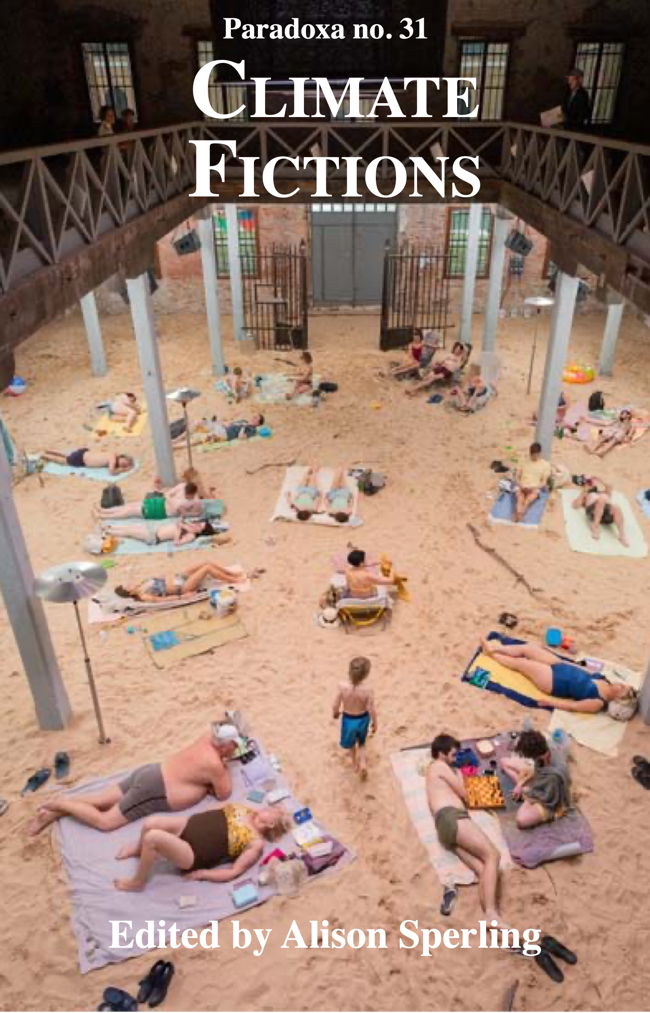Comments
“This special issue of Paradoxa astutely interrogates existing protocols and methods in climate fiction studies. It introduces an extraordinary range of creative engagements with climate change (from digital media to visual, conceptual, and performance art, from video games to board games); it approaches these through conventional essays and revealing author/practitioner interviews; and it offers vital perspectives from across the spectrum of race, gender, and geography. In doing so, this issue sets out new approaches and ideas in climate criticism, while exploring these in impressive depth and breadth. Alison Sperling has curated and edited a set of essays that does justice to today’s climate crisis imaginary: this is bold, timely, and vital.” – Adeline Johns-Putra, Professor of Literature, Xi’an Jiaotong-Liverpool University, author of Climate Change and the Contemporary Novel (2019).
“… this is genuinely one of the best-organized special issues I’ve ever seen.” – Sean Guynes, Editor SFRA Review
“Defining climate fictions as broadly as possible, in terms of literature and arts, propaganda and everyday practice, Alison Sperling presents counterfactual worlds that are vibrant and young. From the surprising reappearance of cycad cones in Britain to the direct interventions afforded by video games to a beautiful consilience of activism, philosophy, and dance, these climate fictions teach us that contingencies must be activated, eroticized, and leveraged against entrenched power. Never has it been more necessary to claim fictionality as tactic, to persistently endorse fictions that supplant the deadly realisms. This collection offers a brilliantly eclectic, queer, anti-colonial, and worldly perspective of what transition cultures are and might become. A happy corrective to those who’ve mistaken climate fictions for dystopian self-indulgence or literary navel-gazing.” – Stephanie LeMenager, Barbara and Carlisle Moore Professor of English and Environmental Studies, University of Oregon, author of Living Oil: Petroleum Culture in the American Century.
“Alison Sperling’s superbly edited Climate Fictions wonders which are the stories we tell ourselves in order to live through climate change. Proposing as many answers as raising new questions concerning culture’s engagement with the environmental crisis, this generous and engaging publication is not teaching but thinking with its readers. While introducing simulative, narrative and speculative positions to imagine the times to come, Climate Fictions drafts more sustainable, fair, creative and efficient strategies for a different future. The publication relies on a superb roster of diverse, transdisciplinary and deeply original positions. Together, the various authors investigate the potential for climate fictions to exist as a welcoming zone where present-day struggles concerning class, race, gender and species equality meet and ally themselves. If, with Le Guin, we are the stories we tell ourselves, Climate Fictions is introducing us to a new, truly intersectional and much urgent version of human selves.” – Filipa Ramos, Lecturer at the Art Institute of the Hochschule für Gestaltung und Kunst, Fachochschule Norwestschweiz, Basel, Switzerland

